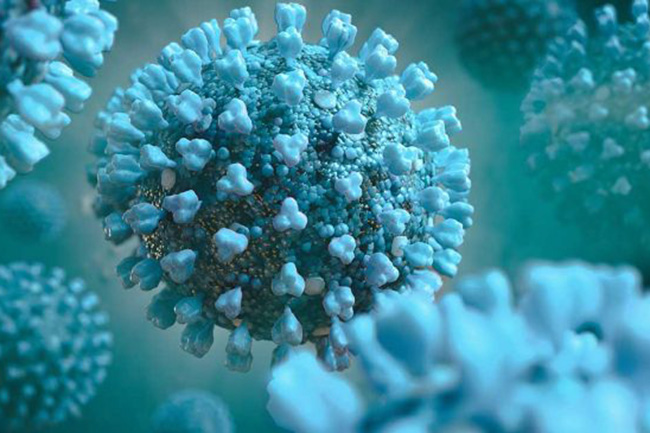Current Covid-19 wave is of different strain with higher infectivity: J’pura University study
October 31, 2020 02:11 pm
A study conducted by the University of Sri Jayewardenepura has revealed that the current Covid-19 wave is of a variant strain with higher infectivity.
The purpose of the study was to determine whether the current Covid-19 outbreak is due to spread of different strains and whether there are certain mutations that result in the rapid spread of the virus as well as to investigate the relationship between the currently circulating virus strains to previous strains circulating in Sri Lanka.
Thereby, a team of scientists at the Department of Immunology and Molecular Medicine and Allergy, Immunology and Cell Biology Unit of the Jayewardenepura University carried out whole genomic sequencing of the virus.
The study has discovered that the currently circulating strain is different from previous strains and that it has the mutation associated with high transmissibility due to high viral loads.
The same virus strain is so far responsible for the infections detected in the Minuwangoda, Colombo Municipality area and the Fish Market cluster, according to the key findings of the study.
Sixteen virus strains originating from Brandix, Minuwangoda, the Colombo Municipality area, Beruwala fish market and patients admitted to tertiary care hospitals have been subjected to sequencing.
Whole genomic sequencing was successful in 13 strains and partial sequencing in 3 strains. Twelve out of 13 strains were similar to each other and were of the B.1.42 lineage (clade 20C), the study reveals.
According to the scientists, this suggests that the virus strains circulating in different places in the country are of a common origin.
Fifteen out of 16 strains have had the D614G mutation, which is associated with high viral load and higher rates of transmissibility.
The previous strains that circulated in Sri Lanka were of the B.1, B.2, B 1.1 and B.4 lineages (The Kandakadu cluster viruses were of B.1 lineage), and therefore, the current virus strain is slightly different as it belongs to the B.1.42 lineage, the study says.
The team of scientists involved in sequencing work are as follows: Dr. Chandima Jeewandara, Dr. Deshni Jayathilaka, Dr. Dinuka Ariyaratne, Mr. Laksiri Gomes and Mr. Diyanath Ranasinghe led by Prof. Neelika Malavige.
Dr. Ananda Wijewickram and Dr. Malika Karunaratne from NIID meanwhile provided the initial samples from the Brandix cluster for sequencing.
The funding for sequencing has been provided by the World Health Organization.














